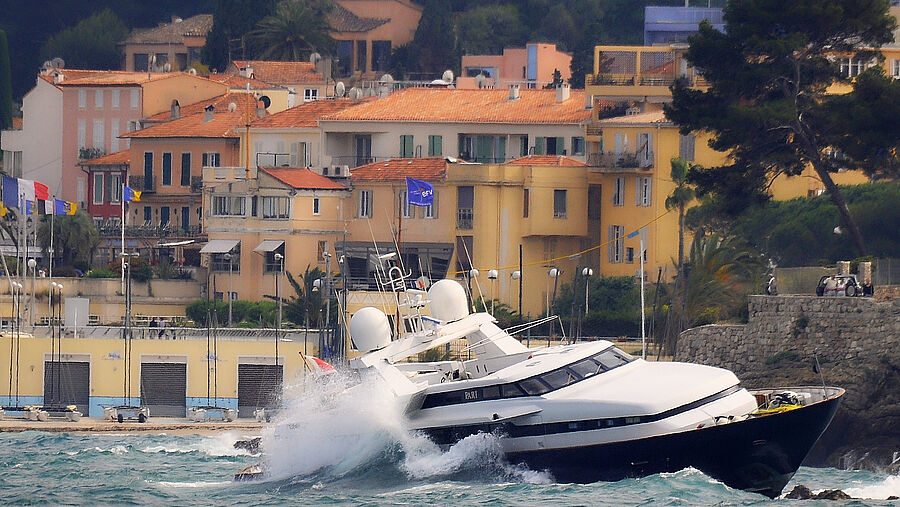If worst comes to worst
Whether the superyacht has run aground or the engines have failed, in an emergency situation the captain and crew need to make swift decisions. Anyone reliant on the assistance of others in such circumstances will often have more pressing concerns than possible towing or salvage costs. That said, these can cause nasty surprises later on.

Pantaenius is involved in a variety of salvage operations every year, some of which are highly complex. In a great many cases however, yachts need to be salvaged at short notice and with little detailed planning. Any help is valuable when it comes to averting the threat of damage or total loss. From professional service providers to private yachts and commercial fishing vessels, any captain can, in principle, come to the aid of a yacht in distress at sea. If successful in salvaging the vessel, any salvor is entitled to charge a reasonable salvage fee. But what some people don't realise is that this fee can equate to as much as 100% of the value of the vessel.
THE INTERNATIONAL CONVENTION ON SALVAGE, 1989
Whilst the duty to rescue people in hazardous situations at sea has been commonly recognised as a matter of course since time immemorial, and has been incorporated by the UN SOLAS Convention into international maritime law, there is no additional obligation to attempt to salvage the stricken yacht at the same time. In order to provide some incentive to assist in salvage operations – even ones that cause detours or, in the case of commercial vessels, loss of earnings – the International Convention on Salvage was concluded in 1989. In order to claim a salvage fee, the salvor must satisfy three criteria under this convention. Firstly, the salvaged vessel or the items it carries must be in danger; secondly, the salvor must act voluntarily, i.e. without being required by law to assist; thirdly, the salvage operation must be successful.
In practice, the question as to whether the affected vessel is in danger and whether a salvage fee is due – as opposed to the usually much smaller reward for towing assistance – is often not clear-cut. Professional salvage companies therefore frequently rely on selfdevised definitions to determine the circumstances under which they are entitled to a salvage fee. The salvage fee amount, as defined in the International Convention on Salvage, 1989, depends on ten different criteria. Determining factors include the value of the salvaged vessel, the extent to which it was successfully salvaged, the expertise of the salvor, the amount of time they gave up, their willingness to assist and the suitability of the equipment used. It follows that the salvage fee charged by a professional salvage company will generally be higher than that charged by the captain of a private vessel.
NO CURE – NO PAY
As a Pantaenius customer, you will always be in safe hands if your vessel needs to be salvaged. The terms of our hull insurance cover reasonable salvage costs provided that the insured vessel is in direct
danger of being damaged and this is preventing a loss recoverable under the hull insurance. When it comes to emergency salvage however, every owner/ captain should be mindful of some basic rules so as
to avoid exceeding the terms of their cover.
CORRECT CONDUCT IN THE EVENT OF SALVAGE
- Contact your insurance partner as soon as possible
- Do not sign a salvage agreement. If you have to, only use Lloyd’s Open Form
- Do not agree a salvage fee or make any statements about the value of your yacht
- Contribute to the salvage as much as you can
- Make notes or records of the precise circumstances
and the duration of the salvage